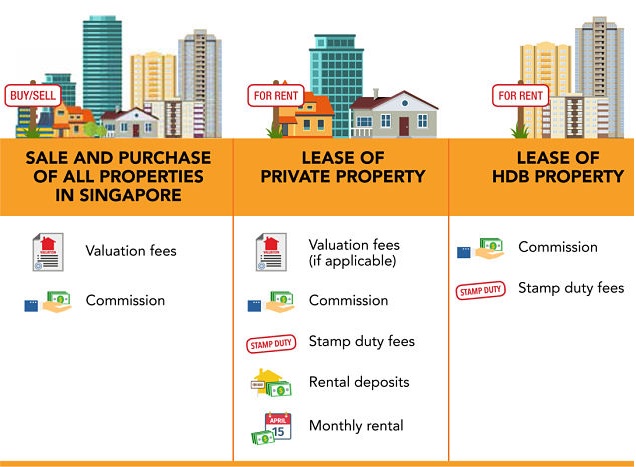This article, originally published on DollarsAndSense.sg was written in collaboration with the Council for Estate Agencies. All views expressed are the independent opinions of DollarsAndSense.sg
If you ever needed to buy, sell, rent or lease out a property in Singapore, chances are that you would have engaged the services of at least one property agent. Often, this agent would be a relative or friend of yours, or even come highly recommended by a trusted contact. Or perhaps you have not transacted or invested in a property before, so your knowledge about property agents is limited to what you have heard, or interactions with friends who are in this line of work. Or perhaps you have not transacted or invested in a property before, so your knowledge about property agents is limited to what you have heard, or interactions with friends who are in this line of work.If this is your first time engaging the services of a real estate agent, this article will serve as an important introduction to some of the actions that your property agent is not allowed to do. |
Before we start, it’s imperative that you know that in Singapore, it’s a requirement for all property agents to be registered with the Council for Estate Agencies (CEA), a statutory board under the Ministry of National Development (MND).
Your property agent should display their name on their estate agent cards which must be worn when they meet clients and shown on any advertisements that they put out. Do also note that it’s an offence for individuals to carry out estate agency work without a valid registration. You can do a quick check via CEA’s Public Register.
To find out just how much people in Singapore know about the role of property agents, we conducted a poll with 162 respondents.
# 1 Your Property Agent Cannot Dual Represent
In every property transaction, there are at least two parties. In a property purchase, there is a buyer and a seller, and in the case of renting, it’s the tenant and the landlord.
Only 40% of our poll respondents knew that it is an offence for property agents to represent both parties. 3 in 10 respondents thought it was not necessarily an offence, as long as the agent declares the relationship while the remaining 30% thought it was okay for an agent to represent both parties or admitted they had no idea.
Do note that your appointed property agent cannot represent both you, and the other party in the transaction.
Your appointed agent can only represent you in a property transaction. What this means is that he cannot receive a commission from both you and the other party in the same transaction as doing so is an offence. This is also known as dual representation.
Likewise, if you are a buyer who has done your own property hunting and have identified the property that you wish to buy, the seller’s agent cannot ask you for commission, since the agent is already representing the seller.
# 2 Agents Cannot Handle Certain Monies On Your Behalf
Half of our respondents mistakenly thought that their agents could handle transaction monies on their behalf as long as both parties mutually agree, or admitted that they had no idea on whether this was allowed.
While you may trust your property agent to handle all transaction matters pertaining to the property, your property agent cannot handle certain monies relating to transactions.
For example, when paying the down payment for a property, you should make the required payment directly to the rightful owner of the property, rather than get your property agent to pass it to the owner on your behalf. Likewise, if you are selling a property, your agent should not receive the amount paid on your behalf.
Below is a list of the type of monies that your agent can handle on your behalf. For other types of monies, it is illegal for your agent to handle them.
# 3 Your Agent Cannot Introduce A Moneylender To You
Property transactions typically require large amounts of financing. For example, you may have purchased a new home while your property agent was still in the midst of helping you sell your existing home. You may also require funds to renovate your new home.
Knowing the tight cash flow situation that you are in, your “kind” agent may introduce to you a few moneylenders you could potentially borrow money in the interim period. You thought that was nice of your agent.
Wrong. It’s illegal.
Under no circumstances should your property agent be allowed to introduce you to a moneylender, even a legal one. This applies even if your agent stands to receive no personal benefits (e.g. commissions) for making the introduction and was genuinely doing it to provide you with the help that he or she thought you needed.
In our poll, only 3 in 10 respondents knew that a property agent cannot, under any circumstances, recommend a moneylender to their client. This applies even if the client specifically asks for the introduction.
# 4 Without Your Consent, Agents Cannot Advertise Your Property
73% of our respondents correctly determined that agents are not allowed to market a property, unless they receive permission from property owners.
An agent also cannot copy an advertisement from an owner, or from another agent, and pass it off as their own. Neither can they deliberately put out an advertisement that prices a property which they do not have the permission to advertise, at below market value in order to attract potential buyers to contact them.
If you have engaged an agent to market the property on your behalf, do note that your agent should ensure all information listed in the advertisement is accurate. Your agent should not falsely advertise a property with information contrary to what you have provided.
At the same time, words or phrases that go against your best interest such as“no co-broke” (which is when an agent refuses to work and split commission with another agent to market your unit), “no agents” or “buyers pay commission” should not be used in the advertisement, as these phrases will limit the pool of potential interested parties. An agent must always act in the best interest of the client that he/she is representing.
# 5 Agents Cannot Hide Conflicts of Interest From You
There are many scenarios in which conflicts of interest may arise.
For example, if you are viewing a property introduced by your agent but is also owned by the agent’s parents, your agent needs to declare this relationship to you.
Also, any other external source of income that your agent may receive due to recommendations that have been made to you must be declared. This includes any referral fee your agent may earn from recommending you to take a loan from a certain bank or use a particular interior designer.
Only 31% of respondents got this question right. 44% thought that the agents must declare the relationship and remove himself/herself from the negotiation while the remaining 25% thought that it was okay for an agent not to declare conflict of interest situation, or admitted that they have no idea.
While any conflicts of interest must be declared, agents can continue to represent their client as long as the client provides written consent to the agent.
| Protect Your Interest As A Consumer By understanding some of the things that your property agent isn’t allowed to do, you will not only protect your own interests, but also receive the appropriate service that you should expect from a registered professional. This would go a long way in ensuring that you enjoy a pleasant experience as you buy, sell, rent or lease a property with the help of an agent. If you wish to find out more about how you can be a happy consumer when dealing with property transaction, you can get more information on the Happy Consumer page on the CEA website. |





